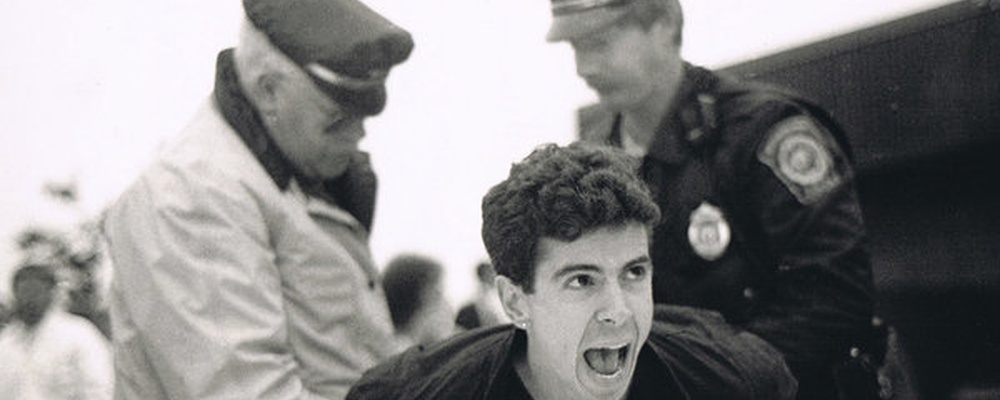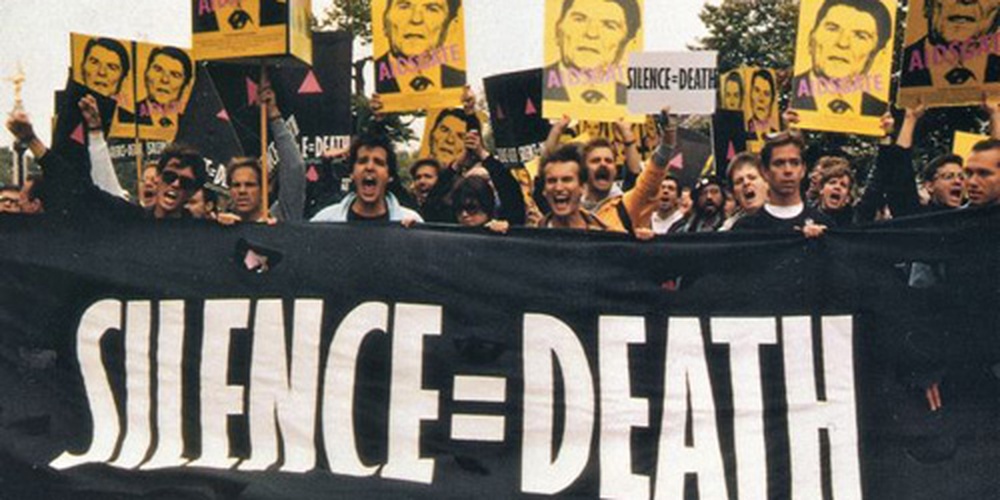

How to Survive a Plague is an astounding untold story of patient activism and innovation — about AIDS survival, not death — which has been overlooked until this important and timely documentary, culled from a trove of never-before-seen archival footage and edited together in verité style to bring the viewer back over two decades to an urgent time of rampant death, political indifference, and amazing resilience.
Here is a story of how nonviolent activists changed history – and set a model for subsequent activists in other diseases like breast cancer here and political settings abroad, as the “Arab Spring” has shown. Our story begins in 1987, as we meet the unlikely ensemble of fiercely intelligent young men and women who formed ACT UP, the history-changing activist group, including: a formerly-closeted Wall Street bond trader, a drama school drop-out who channeled Bette Davis, a nightclub denizen in a black bomber jacket, a teenage runaway with a GED, a bisexual avant-garde video artist, and an established PR pro among them. At first they staged dramatic street-theater protests aimed at forcing bureaucrats to increase research spending, but street theater alone could not save lives.
Recognizing that the global research effort lacked leadership and a sense of urgency, they contrived ways to provide that themselves. For this, they had to educate themselves in virology, pharmacology, and cellular biology – which they did in intensive formal study sessions. They ultimately formed an elite, invitation-only army of activists called Treatment Action Group, or TAG, to take their battle to the highest levels of AIDS research.
Using a combination of enormous demonstrations— sometimes 2,000 and 3,000 strong — outside the doors of the NIH, the FDA, and pharmaceutical company headquarters, and irrefutable arguments inside, TAG managed to seize the reins of the federal AIDS establishment and help direct national spending priorities and individual research agendas.
Even pharmaceutical companies buckled to their demands, appointing TAG members to advisory panels where research decisions are made. It was from this vantage point that they helped identify the first truly effective medications against HIV – against any virus, in fact. When Abbott Laboratories, a key developer, needed two years to prove the drug safe and effective, TAG discovered a statistical short-cut, and submitted a trial protocol cutting that to just six months. In 1996 this drug finally ended the darkest days of AIDS, spared the lives of the remaining activists, and emptied hospitals across the city and nation – and part, but not all, of the globe. Today, of an estimated 35 million people living with HIV worldwide, 5 million are on the medications, and life expectancy for them has risen from 18 months to 45 years after diagnosis. As an unexpected bonus, patients on effective therapies are considerably less likely to transmit infections – down 17% over the past decade.
History has all but forgotten ACT UP’s and TAG’s heroic acts. Even before social networking, coordinated resistance was the key to overcoming adversity. Here is a story of how a then-reviled minority won the attention of the world. How people with no formal training learned the language of science to champion research that saved their lives, and the lives of millions worldwide. Their efforts permanently transformed the way drugs are researched and regulated in America and set out a model of activism that has been emulated in other diseases – notably breast cancer and autism – and other countries. Much work remains ahead of us - some 65 million people live with HIV, yet these powerful drugs only reach 6 million.
How to Survive a Plague leaves us with a powerful inspiration to continue our subjects' work.
Outreach Work Supported
Partnership development, community outreach, and youth-orientated programme.
Required viewing for anyone with a desire for making their own world a better place, inspiring you to act up and fight back.
A moving treatment of a deeply personal subject (France's own partner died of an AIDS-related illness in 1992), and an enthralling depiction of a seriously fired-up popular movement.
